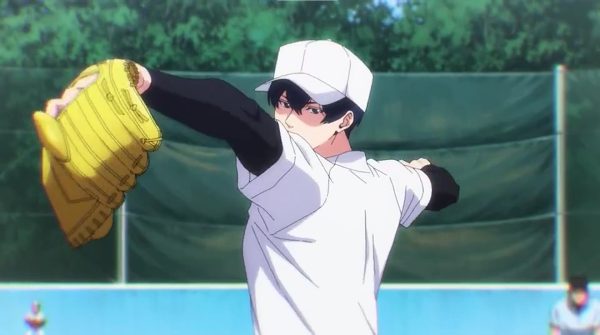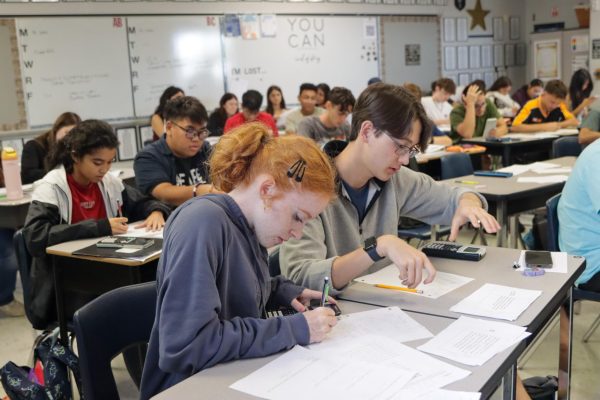High schooler meets world
High schools lack that extra program for students to learn much needed life skills
photo by Julia Sumpter
Students learn how to change a tire at home from parents and older siblings.
High GPAs and passing grades are the main concern for high school students, but college and the real-world are a different ball game. Life beyond high school requires life skills like knowing the difference between a credit and debit card or having the ability to be independent – skills that high school does not necessarily prepare young adults for.
Although school teaches general life skills, the majority of adult tasks like filing taxes or writing checks remain unknown territory for high school students. Teens need to rely on those more knowledgeable of these sorts of tasks to get them done, or in this generation’s case, rely on the internet to provide the answers.
Parents tend to play the role of teaching their children decision making and skills young adults lack. However, teens are still shielded from skills that stunts their growth in adult life. important lessons. When everything is done for a teenager they are not given the opportunity to learn the value of important things in life. A parent may cook dinner while their student does homework because their academics are more important than learning how to do those crucial things on their own.
Seminole County has limited options that train students in real world skills, and classes that have disappeared over the past several years need to make a return. While it may be overwhelming for teenagers to try and tackle learning tons of life skills before they move out, there are some other resources that can help, through courses like Culinary and Early Childhood which teach basic skills for students.
The Early Childhood program offered by Seminole County is among the most popular non-academic pathway students can take. It teaches students how to interact with and take care of young children through combining a traditional classroom setting with hands-on experience. High school classes focus more on students’ grades than getting them ready to be on their own once they graduate.
Culinary is also offered at several high schools in the county, and teaches students how to prepare basic dishes. The class also trains students about food safety and other related principles related to the food industry.
“Even though people may not want to go into the culinary field, a lot of those same skills — the ability to be able to cook and the ServSafe exam that they take — [are helpful],” Principal Robert Frasca said.
These classes have specific “certificates” that can be used and applied in the workforce. A person looking to major in Biology, a class like AP Biology and Chemistry will lead them towards that career. But these classes do not prepare students for the real world and its applications. You do not need to know how antibodies work to do taxes.
Frasca explained that schools must have the funding and be properly equipped to hold extra programs. He stated that it has been one of his goals since he has been at Hagerty to add a program for students.
“It’s just a matter of finding how and what can we really get students interested in,” Frasca said.
A mandatory class that will teach students basic fundamentals which are crucial in an adult’s life. In cases like the Personal Fitness course, which is required to be taken in order to graduate, it is a struggle to get students motivated. Students may not be excited to learn the ins and outs of debit card use, but making it a required class would allow a large number of students to learn important content.
Another bump in the road is budgeting. In order for a new class to be offered, another must be sacrificed. That is where ePathways courses come into play: schools who may not have funding for a big program may be able to find that another high school offers that class and offer it to their own students. For example, if a student wanted to take an Auto Mechanics class, they could take it at Oviedo High School. The class would essentially be an eighth class period, and to compensate for time students are granted a few classes off during the week so they can attend the other campus.
“You’re talking about hundreds of thousands of dollars in that room that can’t be replicated everywhere,” Frasca said.
Students need these classes, however, in order to be independent and live on their own once high school is over. They will not always have a shoulder to lean on, and in case of emergencies, people may need to know crucial skills like how to perform CPR, or use self-defense. These are not taught in the classroom and students will likely have to resort to YouTube and wikiHow to learn them.
High schools do their best to help students make their graduation requirements and stay on the right track for their high school career but not all of those things will get students ready for life. Adding an extra class students are required to take will give them that extra support and help.
Your donation will support the student journalists of Hagerty High School. We are an ad-free publication, and your contribution helps us publish six issues of the BluePrint and cover our annual website hosting costs. Thank you so much!







